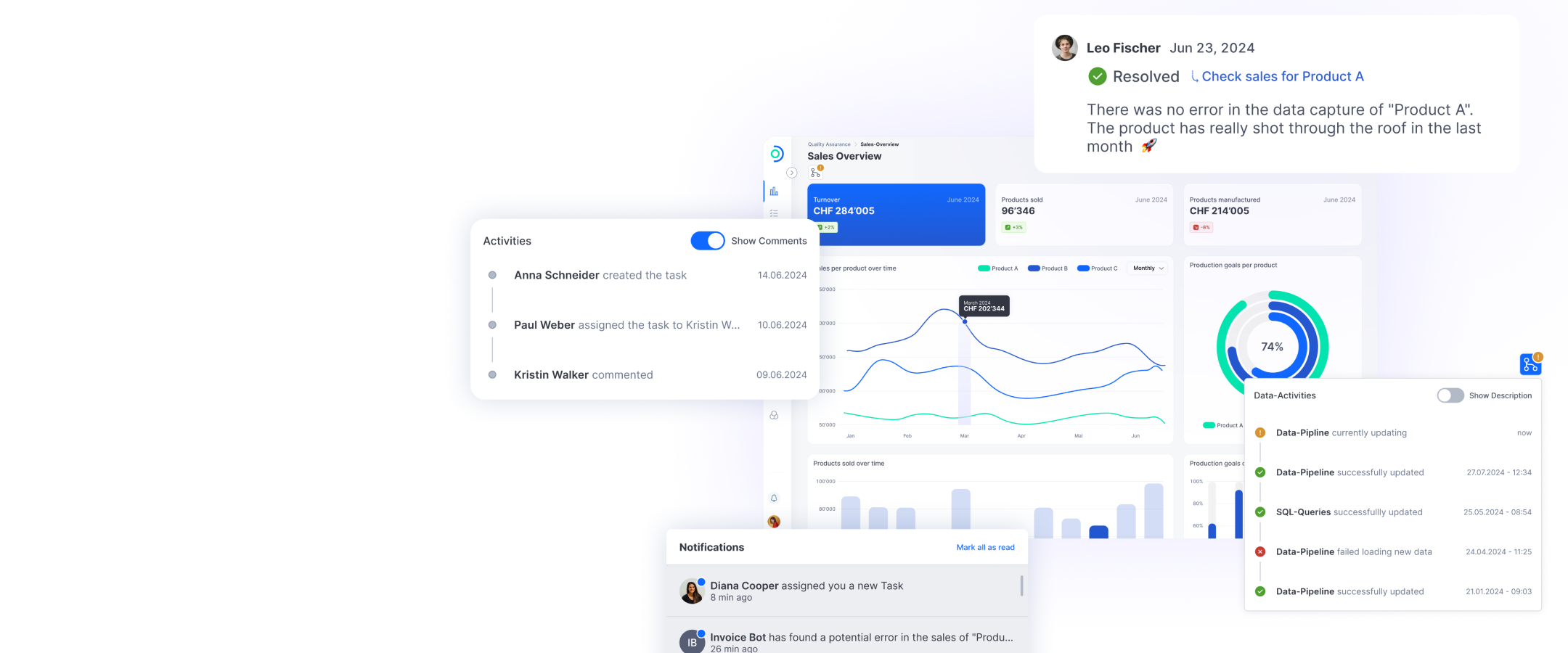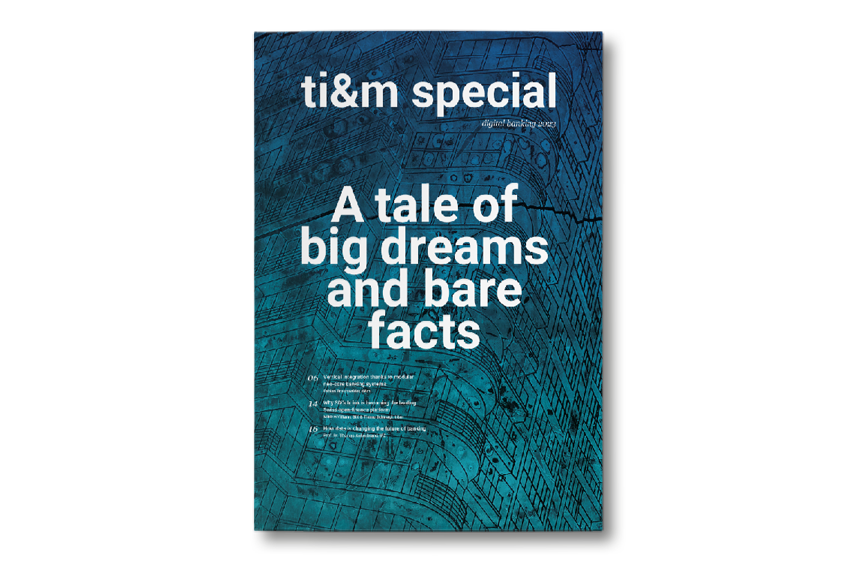Screen people efficiently using AI
Artificial intelligence // In collaboration with ti&m, the Financial Market Authority (FMA) of Liechtenstein developed a selflearning tool to automate the process of screening exposed persons. In addition to improved results, “Fit & Proper” has also resulted in a noticeable reduction in the workload of the FMA’s specialists.
Ensuring the stability and credibility of the Liechtenstein financial market, protecting customers, avoiding and combating abuses and implementing and complying with international standards: The responsibilities of the somewhat over 100 employees of the independent Financial Market Authority of Liechtenstein are diverse, as well as data- and resource-intensive.
AI-assisted people screening: Unbiased and faster results
One of these data- and resource-intensive tasks is the review and approval process for filling key positions such as members of the executive board, the board ofdirectors or compliance officers. Basically, the person must prove their reliability, in particular their (administrative) criminal record and financial stability, with corresponding documents such as extracts from the criminal and debt collection registers. In addition, the FMA conducts personal checks in databases with professionally maintained information. In order to obtain an overall picture and not overlook obvious barriers to reliability, the FMA supplements the authorization process with a web search. In this “Fit & Proper” check, public search engines are used to determine whether the persons concerned are to be classified as politically exposed. A person is considered to be politically exposed if they hold or have previously held influential public office at home or abroad. Such persons can become involved in conflicts of interest particularly quickly, which is why their membership in committees must be carefully examined.
This review process is extensive: Documents must be collected, evaluated and filed. In order to digitalize the process and make it more efficient, ti&m’s AI team conducted a workshop with the FMA and identified possibleareas of application for artificial intelligence. Iteratively, a proof-of-concept was developed from the defined use case, and further possible fields of application for AI were also outlined.
The introduction of “Fit & Proper”, four months after the initial workshop, has standardized and simplified cooperation across all departments: Due to the fully digital and partially automated process, the previous process steps, which were tedious due to switching between media, have been eliminated; all results are now automatically saved and archived as PDFs. The processing of the verifications can thus be completed an estimated 30 – 50 percent faster. In addition to the time saved, the quality of the results has also improved. For one thing, “Fit & Proper” carries out the web search without the bias that might occur when employees use their browsers.Secondly, the tool automatically processes search hits in any language and shows the user a translation of the website in German and English.
Implementing further AI projects one step at time
The FMA is convinced of the usefulness of artificial intelligence, and the development of meaningful, AIbased solutions is part of the IT strategy. However, the application of AI is not meant to be a revolution for the authorities, changing everything overnight. And AI is not the right solution for every problem. Following the motto “Try & Succeed”, the FMA is pushing ahead with its AI strategy, implementing new use cases that create real added value in small steps and with a manageable budget.
One of these next steps, for example, is to support textbased report analysis by using Natural Language Processing (NLP) and make it available to employees as a smart document analysis solution. The FMA processesa large number of documents such as audit or business reports on a daily basis in order to filter out specific information. In a first step, ti&m used Elasticsearch to roll out an intelligent and optimized search function. In a second step, neural search will be integrated, which enables automatic answering of concrete questions such as “What cyber security measures is Bank XY planning for 2023?” Elasticsearch acts as a preselection; neural search then uses the results to answer questions in concrete terms with the help of deep learning and language models.
Other topics include automatic outlier and pattern recognition in the reported data, the use of intelligent chatbots in the FMA’s reporting portal to reduce the support required, and optimizing the keyword search in the document repository by automatically generatingkeywords and metadata based on the document content. Ultimately, all AI-based use cases must always result in an increase in efficiency and/or an improvement in the quality of the results.
“Fit & Proper”
With “Fit & Proper”, the FMA uses bots and AI to screen exposed persons for critical reporting based on public data. The bot performs the web search and downloads the pages with the search hits, while the AI checks the hits found for controversial content and ensures that the hit is really the person being searched for. The results are then presented to the experts in a clear user interface in order to verify the hits marked as controversial by the AI and to continuously improve the system through feedback. It was not possible to fall back on existing sentiment analysis models for the implementation, because these are only able to evaluate detected content negatively or positively. “Fit & Proper”, on the other hand, is only intended to mark controversial content – the negative or positive evaluation is carried out by the employees themselves. Initially, therefore, a separate data pool with 200 people had to be set up: Each person was searched for on the web and all hits were evaluated manually according to two criteria: Is it the right person? And is the content to be considered controversial? Based on the ratings of this sample, the program learned the criteria according to which words or word combinations are classified as controversial, and created a rating grid. The criteria – whether content is controversial or not – were thus“learned” through the sample. It took four months from proof-of-concept to the first solution; since then “Fit & Proper” has been continuously developed and expanded by ti&m. The solution was implemented as a microservice application and runs on the FMA's internal Kubernetes infrastructure.







